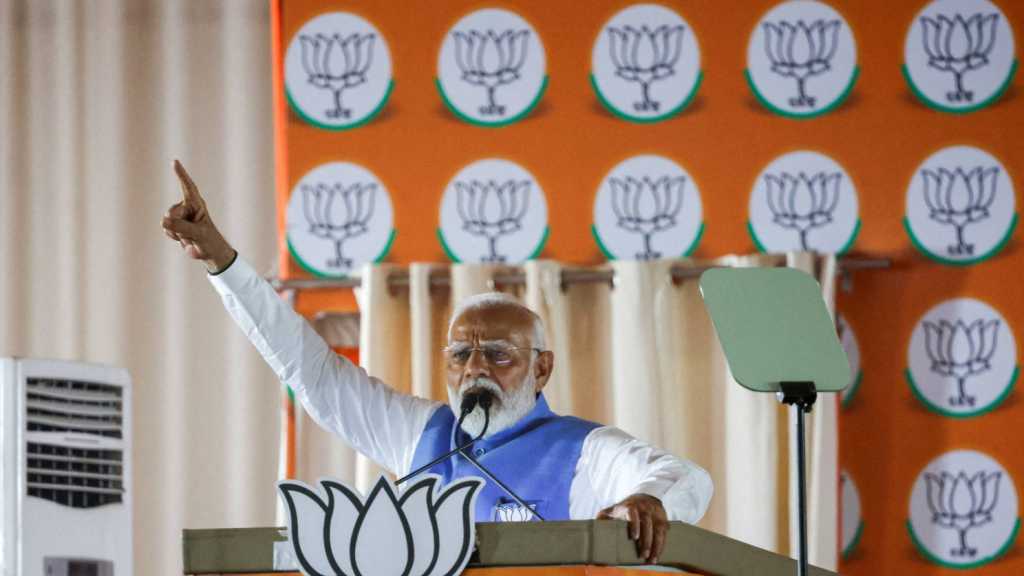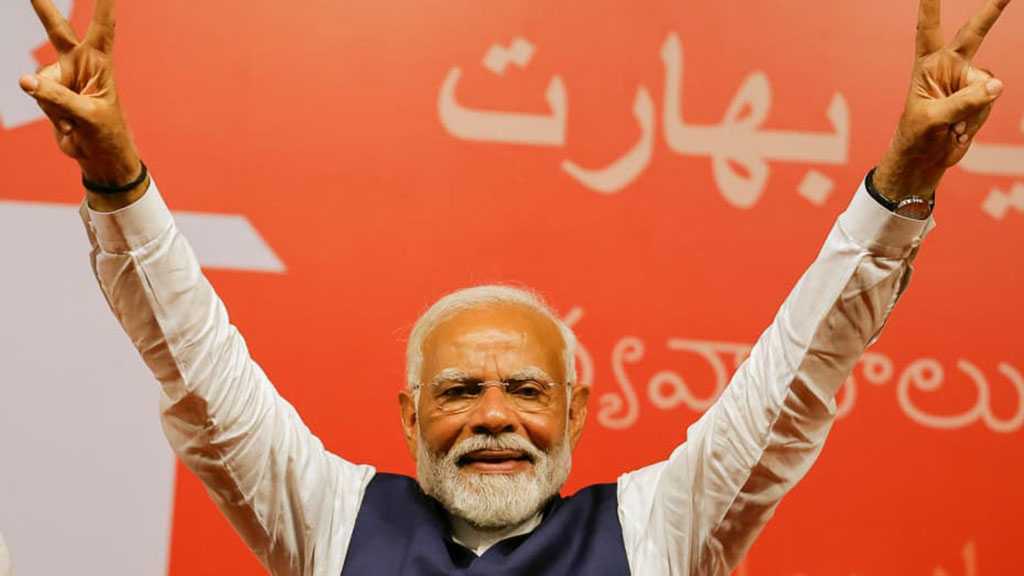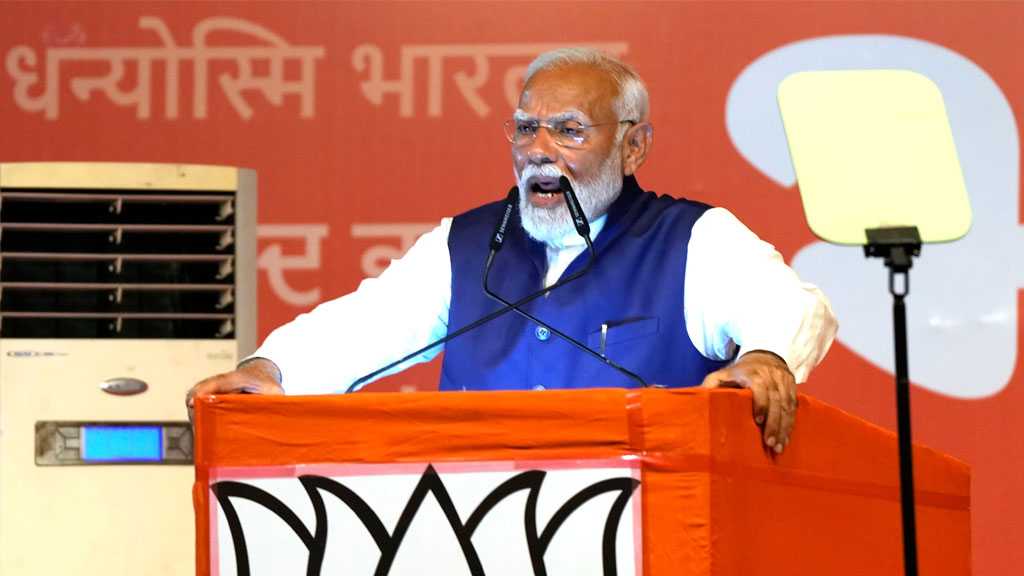India Elections: Modi Poised to Win 3rd Term, He May Fall Short of Landslide Victory

By Staff, Agencies
India’s prime minister, Narendra Modi, looks poised to win a third term in power – but early election results indicate he has not achieved the landslide victory many had predicted.
By early Tuesday afternoon, with half of the 640m votes counted, initial results showed that Modi’s Bharatiya Janata party [BJP] and its political allies had won 290 seats, enough to form a majority government to rule for the next five years.
However, it was a decline from their 2019 victory. The BJP was on course to lose almost 70 constituencies, winning just 240 seats, meaning it will have to rely on its alliance partners to achieve the 272 majority. The outcome so far is a distinct departure from the two-thirds majority that many exit polls had predicted at the weekend.
Meanwhile, the opposition alliance, which goes by the acronym INDIA, appeared to far outperform expectations, collectively winning 234 seats, according to the early count. The alliance, formed of more than 20 national and regional opposition parties, had come together for the first time in this election with the aim of defeating Modi, who has been in power since 2014.
The early results were a particular triumph for the country’s main opposition party and the BJP’s main rival, Indian National Congress, which had dramatically lost the previous two elections to Modi and was facing questions about its future as a party. However, it appeared the Congress party had doubled its seats in this election.
One of the biggest shocks of the early results was the apparent losses faced by the BJP in Uttar Pradesh, the country’s most populous and politically important state, which has 80 seats and is seen as a bellwether for the rest of the country. Early counts showed that the INDIA alliance was ahead of the BJP’s alliance, with parties gaining more than 30 seats.
In the aftermath of the election, it appears likely that Modi will have to face a more powerful and more animated opposition than at any point over the past decade. The results also indicate that the “Modi wave” has been dented by problems such as high unemployment and inflation.
The BJP is still likely to have an outright majority, meaning it can freely move forward with Modi’s flagship Hindu nationalist agenda and economic changes in his third term. However, without the two-thirds parliamentary majority the party had aimed for, it will not be able to amend India’s secular constitution, as many had feared.
Comments
- Related News
![Commemorating Imam Hussein’s [AS] Martyrdom: Solidarity and Reflection in Yari Road, Mumbai](https://english.alahednews.com.lb/uploaded2/images/20240718224512.jpg)


